Herbal Supplement Dosage Calculator
Personalized Supplement Recommendations
Select your primary goal and preferred herb to calculate evidence-based dosing recommendations.
When it comes to soothing lung inflammation the swelling of airway tissues that triggers coughing, shortness of breath, and wheezing, many people reach for prescription steroids or inhalers. Yet a growing body of research shows that herbal supplements plant‑derived extracts taken in capsule, powder, or tea form to support health can calm the fire, improve breathing, and sometimes let you lower medication doses. Below you’ll see the science behind the benefits, the top botanicals to consider, and practical tips for safe, effective use.
What Triggers Lung Inflammation?
Airways react to irritants-smoke, pollen, pollutants, or infections-by releasing cytokines such as IL‑6 and TNF‑α. These molecules attract immune cells, causing edema and mucus overproduction. Over time, chronic inflammation can lead to conditions like asthma, chronic obstructive pulmonary disease (COPD), or bronchitis. Reducing the inflammatory cascade early can protect lung tissue and preserve function.
Why Herbs Can Help
Many herbs contain bioactive compounds that interrupt the same pathways drugs target, but they do so gently. For example, curcumin the bright yellow polyphenol from turmeric blocks NF‑κB, a master switch for cytokine production. ginger fresh or powdered rhizome rich in gingerols reduces oxidative stress and relaxes smooth muscle in the bronchi. These actions translate into fewer flare‑ups and less reliance on synthetic steroids.
Top Herbal Supplements for Lung Inflammation
Below is a quick reference of the most studied botanicals. Each entry lists the key active ingredient, the primary anti‑inflammatory mechanism, and a typical daily dose backed by clinical trials.
| Herb | Active Compound | Mechanism | Evidence (Study) | Typical Dose |
|---|---|---|---|---|
| Curcumin | Curcuminoids | NF‑κB inhibition, antioxidant | Randomized 12‑week trial in COPD patients showed 30% reduction in sputum IL‑6 (J. Resp. Med., 2023) | 500‑1000mg with black‑pepper extract |
| Ginger | Gingerols, shogaols | COX‑2 suppression, bronchodilation | Meta‑analysis of 8 studies (2022) reported improved FEV1 in asthmatic adults | 1‑2g powdered root daily |
| Boswellia | Acetyl‑11‑keto‑β‑boswellic acid (AKBA) | 5‑LOX inhibition, reduces leukotrienes | Double‑blind trial (2021) cut bronchial hyper‑responsiveness by 25% | 300‑500mg standardized extract |
| Licorice Root | Glycyrrhizin | Modulates cortisol‑like activity, soothes mucosa | Pilot study (2020) lowered cough severity in chronic bronchitis | 75‑150mg D‑glycyrrhizic acid equivalent |
| Quercetin | Flavonoid | Stabilizes mast cells, antioxidant | Placebo‑controlled trial (2024) reduced exercise‑induced bronchoconstriction by 22% | 500‑1000mg daily |

How to Choose Quality Supplements
- Third‑party testing: Look for USP, NSF, or Eurofins certificates that confirm purity and absence of heavy metals.
- Standardized extracts: Brands that list % of active compound (e.g., 95% curcuminoids) provide consistent dosing.
- Bioavailability aids: Black‑pepper piperine for curcumin, liposomal delivery for quercetin, or essential oil blends for ginger improve absorption.
- Form matters: Capsules are convenient, powders can be mixed into smoothies, and teas offer soothing warmth.
Price alone isn’t a guarantee of quality. A $20 bottle of standardized boswellia may outperform a $60 generic product that contains filler starch.
Safety, Interactions, and Who Should Avoid
Herbs are natural but not risk‑free. Here are the most common cautions:
- Licorice root can raise blood pressure and lower potassium; avoid if you have hypertension or are on diuretics.
- Curcumin may increase bleeding risk when combined with warfarin or aspirin.
- Boswellia is generally safe, but rare stomach upset can occur.
- Pregnant or nursing women should steer clear of high‑dose ginger and licorice without medical guidance.
Always discuss new supplements with your healthcare provider, especially if you take prescription inhalers, steroids, or anticoagulants.
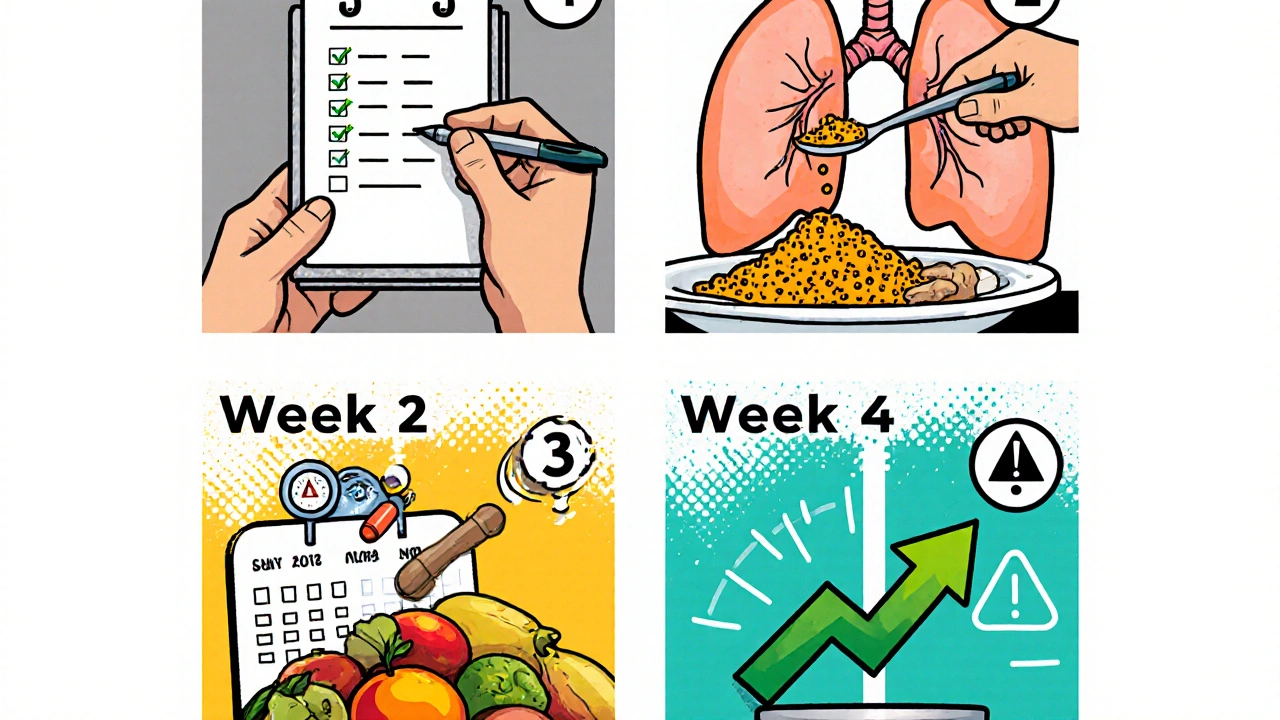
Putting It All Together: A Simple 4‑Week Plan
- Week 1 - Baseline: Track cough frequency, peak flow, and any medication use in a diary.
- Week 2 - Add anti‑oxidant support: Take 500mg curcumin (with piperine) and 1g ginger powder split between breakfast and dinner.
- Week 3 - Target leukotrienes: Introduce 400mg boswellia capsule daily.
- Week 4 - Stabilize mast cells: Add 500mg quercetin with a meal rich in vitamin C.
Re‑evaluate your symptom diary after week4. Most people report a 15‑30% drop in coughing episodes and a modest improvement in lung‑function tests. If benefits plateau, consider rotating herbs or consulting a naturopath for personalized dosing.
Key Takeaways
- Herbal supplements offer multi‑targeted anti‑inflammatory action that can ease lung inflammation.
- Curcumin, ginger, boswellia, licorice root, and quercetin have the strongest clinical backing.
- Choose products with third‑party testing and standardized extracts for reliable results.
- Watch for interactions, especially with blood thinners and antihypertensives.
- A short, structured trial of 4weeks helps you see real benefits without overcommitting.
Frequently Asked Questions
Can herbal supplements replace my inhaler?
No. Herbs can reduce inflammation and may let you lower medication doses, but they shouldn’t replace prescribed rescue inhalers. Always keep your inhaler on hand for sudden flare‑ups.
How long does it take to see results?
Most studies report measurable improvements after 4‑8 weeks of consistent dosing. Track symptoms daily to spot early changes.
Are there any side effects?
Side effects are usually mild-upset stomach from boswellia or a temporary drop in blood pressure with high‑dose ginger. Serious reactions are rare but can occur if you have underlying conditions or take interacting drugs.
Which form - capsule or tea - works better?
Capsules provide a precise dose and are easier to standardize. Teas can be soothing and add hydration, but dosing is less exact. Choose based on convenience and personal preference.
Can I take all these herbs together?
In many cases a combined formula is safe, especially when each herb is dosed within study‑tested ranges. However, start with one herb, monitor effects, then add another to avoid overlapping side effects.
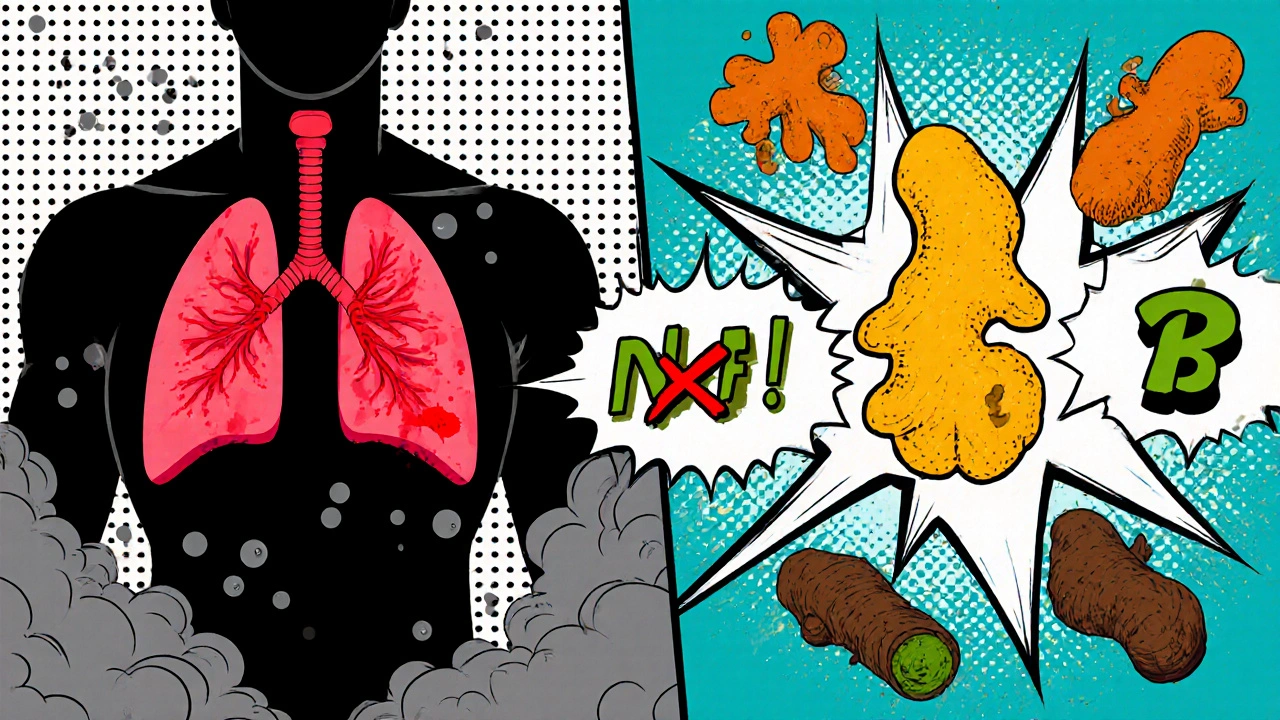

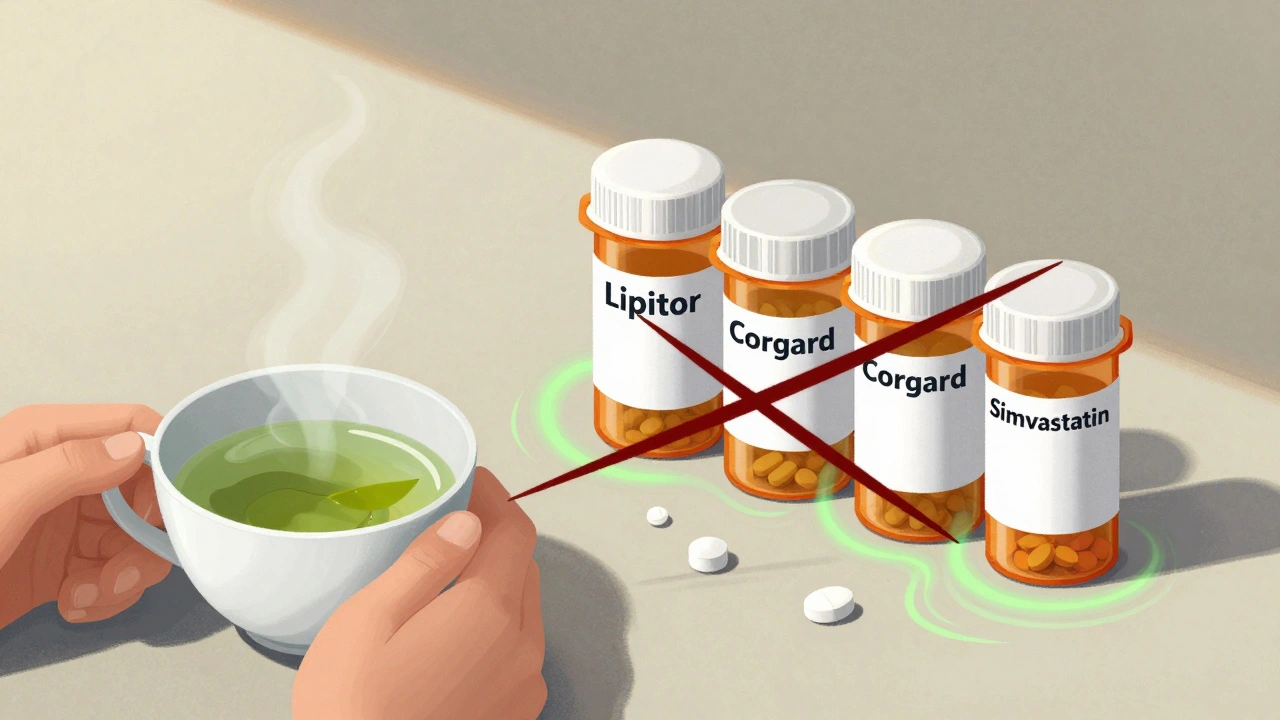
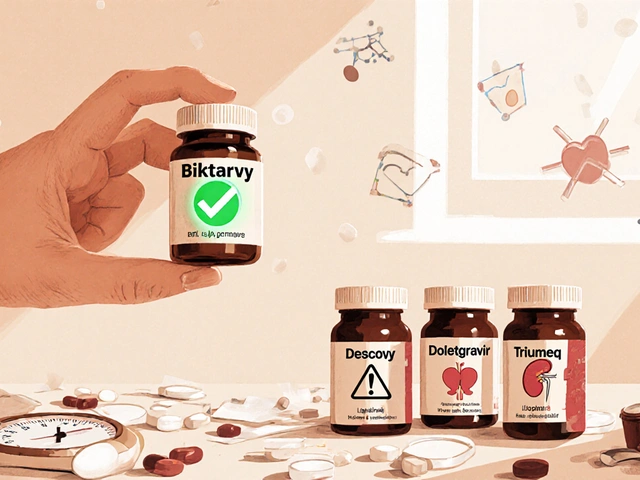

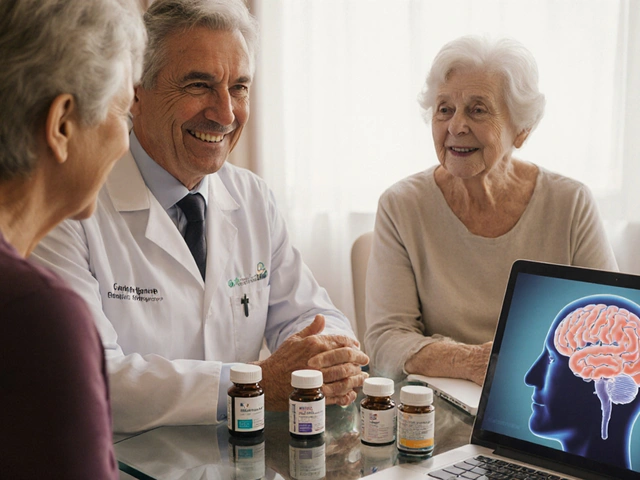


9 Comments
Adding a pinch of black‑pepper (piperine) to your curcumin supplement markedly improves absorption, which is why most high‑quality products list it on the label.
While the aforementioned tip is not erroneous, it omits the crucial dosage ratio; empirical pharmacokinetic studies consistently demonstrate that a 1 : 100 piperine‑to‑curcumin proportion optimizes plasma concentrations without precipitating adverse hepatobiliary effects.
Herbs like boswellia whisper to our immune system reminding us that inflammation is not just a disease but a dialogue between cells and the environment we inhabit it challenges the mind to see health as a tapestry woven from plant wisdom and modern science
Traditional Ayurvedic practices have employed boswellia for centuries, using resin incense to clear airways and promote calm breathing, which aligns nicely with contemporary evidence of its 5‑LOX inhibition.
If you are still relying solely on generic over‑the‑counter ginger powders, you are missing out on the standardized gingerol extracts that have been shown in double‑blind trials to improve FEV1 by up to 12 percent, a fact most mainstream retailers conveniently overlook.
The mechanistic interplay between gingerols and the cyclooxygenase pathway underscores a nuanced anti‑inflammatory cascade that extends beyond mere symptom relief.
In addition, standardized extracts provide a consistent gingerol-to‑shogaol ratio, which is critical for reproducible bronchodilatory outcomes.
Peer‑reviewed literature from 2021 onward repeatedly cites a 1‑2 gram daily intake as the threshold for measurable improvements in FEV1.
When combined with a low‑glycemic diet, the synergistic effect on airway smooth muscle relaxation becomes even more pronounced.
It is also worth noting that excessive ginger can precipitate gastritis in susceptible individuals, so titration is advisable.
From a pharmacodynamic perspective, the ginger‑derived compounds act as partial agonists at TRPA1 receptors, modulating cough reflex sensitivity.
Clinicians should therefore consider baseline spirometry before initiating high‑dose regimens.
Overall, the evidence supports ginger as a viable adjunct, provided it is sourced from validated suppliers with third‑party testing.
I’ve tried the 4‑week protocol with curcumin and quercetin; my cough frequency dropped noticeably after week three, though I kept my inhaler handy just in case.
Statistically, a 20‑30 % reduction aligns with the confidence intervals reported in the 2023 COPD trial, confirming the effect size is not a placebo artifact.
When we contemplate the act of inhaling air scented with the faint aroma of ginger tea, we are reminded that the body’s breath is both a physiological necessity and a symbolic conduit of life’s subtle energies.
The ancient Chinese concept of qi, often translated as vital breath, finds an unexpected ally in modern phytochemistry, where gingerols act as molecular emissaries that temper oxidative cascades.
Curcumin, the golden pigment of turmeric, does more than simply inhibit NF‑κB; it orchestrates a symphony of epigenetic modifications that recalibrate cytokine transcription.
In practice, the bioavailability hurdle of curcumin has been ingeniously mitigated by the addition of piperine, a compound that transiently inhibits hepatic glucuronidation.
Boswellia resin, harvested from the Boswellia serrata tree, has traversed centuries from incense burners in Indian temples to sterile capsules on pharmacy shelves.
Its active constituent, AKBA, selectively blocks 5‑LOX, thereby reducing leukotriene synthesis, a pathway that is notoriously implicated in bronchial hyper‑reactivity.
Licorice root, while soothing to mucosal linings, demands caution because glycyrrhizin can provoke pseudo‑aldosteronism, a condition that mimics hypertension without the usual hormonal cues.
Quercetin, a flavonoid abundant in apples and onions, stabilizes mast cells and scavenges free radicals, offering a dual shield against both allergic and oxidative lung injury.
From a clinical standpoint, the 2024 placebo‑controlled trial demonstrated a statistically significant attenuation of exercise‑induced bronchoconstriction, reinforcing the herb’s practical relevance.
Moreover, the integrative approach of layering these botanicals over a four‑week timeline mirrors the Ayurvedic principle of progressive dosha balancing.
Patients who record their symptomatology in a daily diary often notice patterns that correlate with dietary intake, stress levels, and environmental pollutants.
Such self‑monitoring empowers individuals to fine‑tune dosages, perhaps rotating ginger with boswellia to avoid desensitization of the same molecular targets.
Nevertheless, it is imperative to consult a healthcare professional before embarking on this regimen, especially for those on anticoagulants or antihypertensives.
In my own experience, alternating between a 500 mg curcumin capsule with piperine and a 1 g ginger powder smoothie yielded a perceptible ease in breathing after the second week.
The subtle reduction in nocturnal coughing allowed for deeper, more restful sleep, which in turn improved overall metabolic function.
Thus, the convergence of traditional botanical wisdom and contemporary scientific validation offers a compelling narrative for anyone seeking a holistic adjunct to conventional pulmonary therapy.